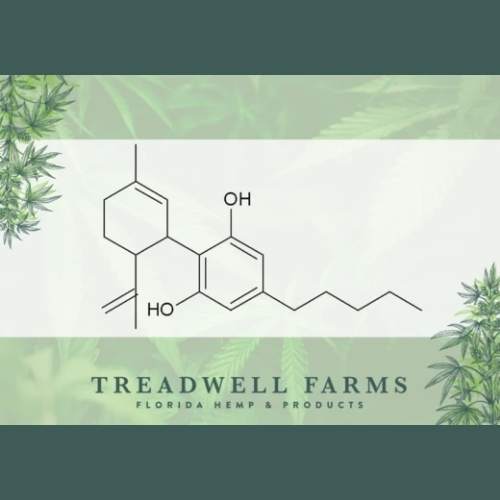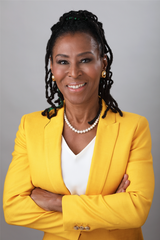What is CBD? Breaking Down Its Healing Potential

Authored by: Genester Wilson-King, MD FACOG & Sarah Russo
What is CBD? Breaking Down Its Healing Potential.
Cannabidiol (CBD) is a compound from the Cannabis plant that has significant benefits. CBD has gained popularity worldwide and has changed the global conversation on cannabis medicine. Scientific and clinical research highlights CBD’s potential as a treatment for a wide range of conditions. CBD products provide a natural option for many patients seeking relief from a variety of conditions without unfavorable side effects.[1]
History & Background
CBD was synthesized in 1940 by Roger Adams, and chemically identified in 1963. That came before THC (Tetrahydrocannabinol), which Raphael Mechoulam isolated and synthesized in 1964. THC was falsely believed to have been the “active compound” in cannabis, and much of the scientific study focused on it. There is no single active compound in cannabis but rather a dynamic collection of components. [2] CBD is just one part of the vast potential of this botanical medicine.
CBD is a cannabinoid, which is a compound that influences a system within our bodies called the endocannabinoid system (ECS). The ECS is responsible for modulating many physiological processes in the human brain and body. There have been over 100 cannabinoids that have been identified so far in the Cannabis plant. Of these plant compounds, THC and CBD have been the most researched. [2] CBD does not directly bind to endocannabinoid receptors in the body like THC does, but exerts its influence via other methods. CBD products mean that many more people—including those who don’t enjoy psychoactivity— may use cannabis for health reasons. [3]
Therapeutic Potential
CBD provides therapeutic benefits in many different ways by tapping into how the body functions on a physiological and biological level. Extensive laboratory research and some clinical studies have shown that CBD possesses strong anti-inflammatory, anti-anxiety, anti-depressant, anti-oxidant, anticonvulsant, antipsychotic, anti-tumoral, and neuroprotective qualities. Cannabidiol has also been found to modulate gene expression, which may have dramatic impacts on various ailments. [3,4]
Cannabidiol has potential applications for a wide variety of health issues. Some of the strongest scientific evidence available is for severe seizure disorders such as Dravet and Lennox-Gastaut, where traditional antiseizure medications are often ineffective. CBD preparations have been found to reduce the number of seizures or stop them together in a variety of studies. In 2018 The Food and Drug Administration approved the first ever CBD or cannabis-derived medicine for these conditions, called Epidiolex. [5]
CBD has been shown to have neuroprotective properties and prevent memory loss in numerous studies. It may reduce the death of neurons and brain cells. Scientists discovered that CBD stimulates the growth of new brain cells in adult mammals. Animal studies have discovered that CBD may prevent the damage caused by a brain injury if it was given soon after the incident, and may also benefit people when taken later on. [6]
Greater Together Than Apart
CBD works best when with the presence of other cannabinoids, flavonoids, and terpenes from the plant. For example, THC and CBD work well in combination with one another, and both amplify one another's healing potential. The therapeutic attributes of the whole plant in combination with one another is known as the “entourage effect”. The therapeutic impact of the plant together is greater than the sum of its individual parts. [2]
Most studies on CBD use synthetic, single-molecule cannabidiol produced by laboratories for research purposes. There are also many single compound (“pure”) CBD products on the market. Various research studies have demonstrated the inferior properties of single-molecule CBD as opposed to whole plant or full-spectrum CBD-rich cannabis extracts. [7] Whole plant refers to the use of the plant and all its therapeutic components. Full-spectrum means that the plant has been processed but has maintained the terpene profile and other components and kept them intact. Learn more about the Treadwell Farms process here.
CBD Dosing & Safety Considerations
Scientific evidence suggests that CBD is safe even when consumed in large doses. However, it is ideal, to begin with a small dose of CBD, especially if someone has little or no experience with using it. CBD has bi-phasic properties, meaning that at low doses and high doses may produce opposite effects. For example, an excessive amount of CBD could be less effective than moderate doses. Use the same product and dose for several days to see how the product affects you. Observe the effects, and adjust if necessary.
Patients taking other medications should check with a medical professional about drug interactions. At certain dosages, CBD can temporarily deactivate Cytochrome P450 enzymes, which alters how a wide range of compounds are metabolized. Cytochrome P450 metabolizes more than 60% of pharmaceutical medication. [8] Patients taking CBD should monitor changes in their experience, and adjust the dose if needed.
Growing evidence has demonstrated CBD’s unique ability to act on various parts of the body and the potential to provide relief from a wide variety of illnesses. As the interest in CBD expands, we will continue to learn more about its potential therapeutic applications. To learn more about CBD studies for your health, visit Project CBD.
 Genester Wilson-King, MD FACOG is a Board-Certified Obstetrician and gynecologist with over 25 years of clinical experience providing compassionate and research-driven care to patients. After years of working as a full-service OB/GYN, she founded Victory Rejuvenation Center (VRC), a private holistic and preventive medicine practice that provides life-transforming management modalities and customized medicines to patients. She is the Medical Advisor to Treadwell Farms.
Genester Wilson-King, MD FACOG is a Board-Certified Obstetrician and gynecologist with over 25 years of clinical experience providing compassionate and research-driven care to patients. After years of working as a full-service OB/GYN, she founded Victory Rejuvenation Center (VRC), a private holistic and preventive medicine practice that provides life-transforming management modalities and customized medicines to patients. She is the Medical Advisor to Treadwell Farms.
As the Medical Director of VRC, Dr. Wilson-King provides services that help her patients age gracefully and achieve holistic well-being. She focuses on plant-based medicine, integrated health, nutrition, supplements, cannabis education, and hormone balance.
Dr. Wilson-King is Co-Vice President of the Society of Cannabis Clinicians (SCC). The SCC is an educational and scientific society of physicians and other professionals dedicated to the promotion, protection and support of cannabis for medical use. Dr. Wilson-King co-authored the Best Practices Guidelines for Cannabis Use in Pregnancy and Breastfeeding, and Cannabis Use in Women – Special Considerations (in progress). She is also on the Board of the Doctors For Cannabis Regulation (DFCR), the first and only national physicians’ association dedicated to the legalization and regulation of cannabis for adults. Advancing the DFCR’s commitment to addressing the disproportionate criminalization of cannabis use among communities of color and the nation’s poor, she regularly provides expert opinions for legal cases involving cannabis.
Dr. Wilson-King is a nationally recognized advocate, clinician, and educator for cannabis and hormone and wellness therapies. She presents on cannabis use in obstetrics and gynecology, hormone therapy for PMS, various stages of menopause, and for applications in nutrition.
 Sarah Russo is a longtime plant enthusiast and globetrotter. She got her degree in environmental studies and social justice, with a focus on plant medicine from the Evergreen State College. She is a freelance writer, consultant, and project manager with over 13 years of experience in the cannabis and herbal medicine space. Her main objectives are fighting for the right to use plants, implementing social justice approaches in the cannabis industry, as well as encouraging sustainable agricultural practices. She is currently based on an island in the Mediterranean. Sarah is a content creator for Treadwell Farms.
Sarah Russo is a longtime plant enthusiast and globetrotter. She got her degree in environmental studies and social justice, with a focus on plant medicine from the Evergreen State College. She is a freelance writer, consultant, and project manager with over 13 years of experience in the cannabis and herbal medicine space. Her main objectives are fighting for the right to use plants, implementing social justice approaches in the cannabis industry, as well as encouraging sustainable agricultural practices. She is currently based on an island in the Mediterranean. Sarah is a content creator for Treadwell Farms.
Sources
- World Health Organization. (2017). CANNABIDIOL (CBD) Pre-Review Report
- Russo, Ethan. Taming THC: potential cannabis synergy and phytocannabinoid-terpenoid entourage effects. Br J Pharmacol., 2011
- Project CBD. (2017) How CBD Works. Accessed on 4/14/2020.
- Lee & Devitt-Lee. (2014) CBD, PPARs & Gene Expression. Project CBD
- Food and Drug Administration (2018). FDA Approves First Drug Comprised of an Active Ingredient Derived from Marijuana to Treat Rare, Severe Forms of Epilepsy. Accessed on 4/14/2020.
- Society of Cannabis Clinicians. (2020). Research Library search: Neuroprotective properties of CBD. Accessed on 4/14/2020
- Lee, Martin A. (2015). Is Pure CBD Better?. Accessed on 4/15/2020
- Project CBD. (2018). Primer on CBD Drug Interactions. Accessed on 4/15/2020






